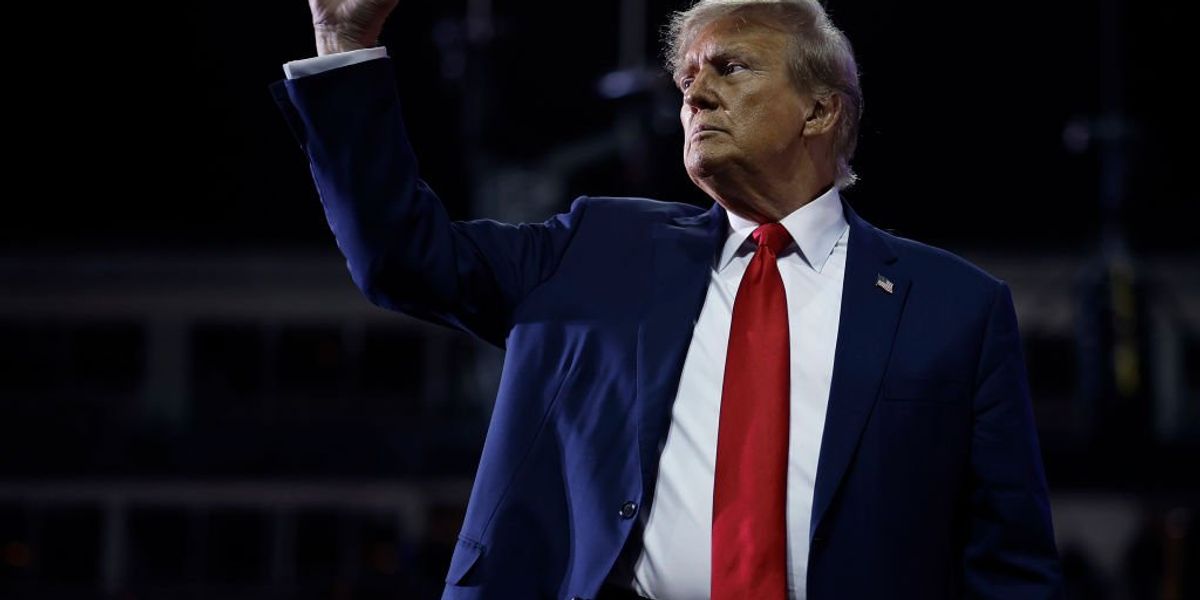Qatar has paused its efforts to mediate a ceasefire and hostage release deal between Hamas and Israel, signaling it will only return to negotiations if both sides demonstrate a genuine interest in ending the conflict, according to an official familiar with the discussions.
The decision also places doubt on the continued presence of Hamas’ political office in Doha, which has served as a key link in negotiations since 2012.
Since October, Qatar has worked alongside the United States and Egypt to broker talks aimed at de-escalating violence between Hamas and Israel.
Trump Surges To Victory – Get the Ultimate Trumpinator Bobblehead To Celebrate 2024!
However, the conflict, which began on October 7, 2023, when Hamas launched an assault on Israeli communities, has persisted with significant casualties.
The initial attack by Hamas resulted in approximately 1,200 Israeli deaths and the capture of 253 hostages. In response, Israel’s military campaign has devastated large areas of Gaza, reportedly resulting in the deaths of around 43,500 Palestinians.
The official confirmed that Qatar informed Hamas, Israel, and U.S. representatives of its decision to withdraw from mediation efforts unless both parties exhibit a “sincere willingness to return to the negotiation table.”
Additionally, the official stated that Qatar now believes the Hamas political office in Doha “no longer serves its purpose,” signaling a potential shift in Qatar’s stance toward the Palestinian group as some of its leaders continue to face targeted assassinations by Israel.
Neither Hamas nor Israel has issued a formal response to Qatar’s decision.
However, three officials from Hamas reported that they had not been officially notified that their leaders are no longer welcome in Qatar.
Mediation efforts have been strained since the last round of talks in mid-October, which ended without an agreement.
At that time, Hamas rejected a proposal for a short-term ceasefire, and Israel has also dismissed proposals for longer truces. Central points of contention in these discussions have been Hamas’ long-term presence in Gaza and Israel’s security concerns.
Following the October talks, Washington reportedly expressed concerns to Qatar about Hamas’ ongoing presence in Doha.
A U.S. official confirmed on Friday that the Biden-Harris administration had communicated that allowing Hamas leaders to remain in Qatar was “no longer acceptable.”
This isn’t the first time Qatar has reconsidered hosting Hamas leadership. In April, Qatari officials raised concerns over the group’s presence due to pressure from U.S. and Israeli leaders.
At that time, some Hamas leaders left for Turkey but were requested to return after U.S. and Israeli officials argued that negotiations were less effective without their presence in Doha.
Qatar, a designated major non-NATO ally by the United States, has historically served as a diplomatic intermediary for Western countries in the region.
Home to the largest U.S. airbase in the Middle East, Qatar also hosts political offices for groups like Hamas and the Taliban and facilitated a prisoner exchange between the U.S. and Iran in 2022.
Though the exact number of Hamas officials residing in Doha is unclear, several key figures are reportedly based there.
Among them are Khalil al-Hayya, deputy to Yahya Sinwar, who was killed in Gaza last month, and Khaled Meshaal, regarded as Hamas’ primary diplomatic figure.
Ismail Haniyeh, the group’s former leader, was based in Doha until he was killed in Iran in July. His body was later transported to Qatar for burial.
With Qatar’s suspension of mediation efforts, the path forward for potential ceasefire discussions becomes more complex, leaving the international community to monitor whether new diplomatic approaches will emerge in the ongoing crisis.
The opinions expressed by contributors and/or content partners are their own and do not necessarily reflect the views of LifeZette. Contact us for guidelines on submitting your own commentary.
Read the full article here


![Ceasefire Talks Collapse, Qatar Reconsiders Hamas Presence [WATCH] Ceasefire Talks Collapse, Qatar Reconsiders Hamas Presence [WATCH]](https://www.rvmnews.com/wp-content/uploads/2024/06/2024.06.18-10.09-rvmnews-66715cf46c1f3.jpg)


![Trump Agreed to Sit Down Interview with Serial Hoax Reporter Jeffrey Goldberg [WATCH] Trump Agreed to Sit Down Interview with Serial Hoax Reporter Jeffrey Goldberg [WATCH]](https://www.lifezette.com/wp-content/uploads/2025/01/2025.01.22-06.43-lifezette-67913c6c7af1c.jpg)



![Daytime Kidnapping Attempt in Florida Foiled by Quick-Thinking Good Samaritans [WATCH] Daytime Kidnapping Attempt in Florida Foiled by Quick-Thinking Good Samaritans [WATCH]](https://www.rvmnews.com/wp-content/uploads/2025/04/2025.04.25-06.45-rvmnews-680bd853d60f3.jpg)
